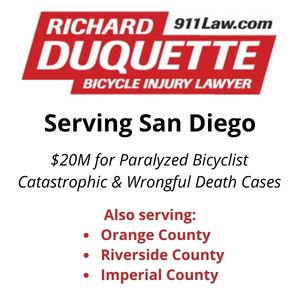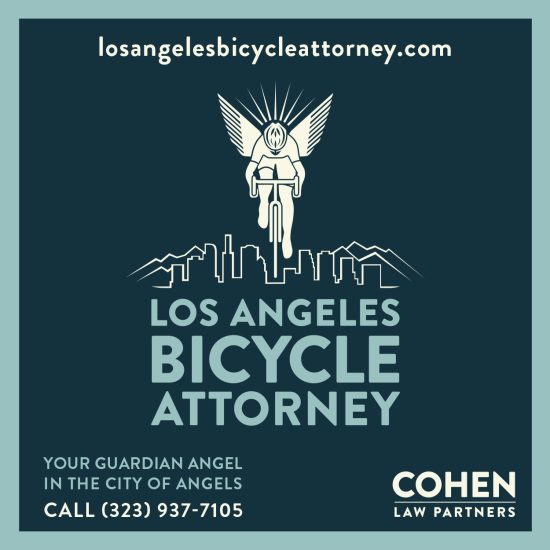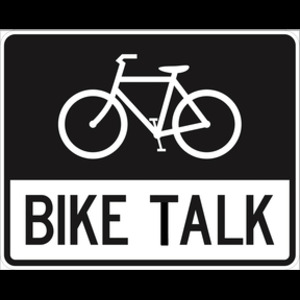There’s an interesting debate going on over at Streetsblog.
As I noted the other day, Damien Newton has written about a new ghost bike at Fountain and La Brea — a memorial to two women who died when one of the cars involved in a typical traffic accident careened into the women as they stepped off the curb, killing them both.
Just another tragic accident.
After all, no one intentionally did anything to endanger these women. They were just in the wrong place, at the wrong time, when things when out of control with unintended consequences. And yet, they’re still dead.
As Damien put it:
Of course, neither driver was charged in the crash because of a little-known, but oft-cited, part of the vehicle code that clearly states, “Unless a driver is drunk, runs away from the crash or does something else horrific but telegenic action; said driver can kill as many pedestrians as he or she desires.” I guess causing a chain reaction of crashes that kills two elderly women, and injured a third pedestrian, wasn’t quite exciting enough.
A few people took exception to that. David Galvin, for instance:
Right. Because the drivers of both of these vehicles really desired to kill two people that day. How do you know that? Because they were driving cars. Murderous monsters. Do drivers of the blue line “desire” to kill someone when that happens?… The incident mentioned in the post was tragic. And yes it resulted from either wrecklessness OR a momentary lapse in judgement OR a mistake. And yes, it cost the lives of two people. But there IS such a thing as an accident.
Which got me wondering, is there really such a thing as an accident? Or to put it another way, is it possible to have a collision without at least one of the drivers — or yes, cyclists or pedestrians — violating the law in some way?
I’m not sure it is.
Invariably, one or more of the people involved is speeding, tailgating, or fails to yield the right-of-way. Or simply isn’t paying enough attention.
I’ve been wracking my brain — or what’s left of it, anyway — and can only come up with two ways an accident could occur with no one being at fault.
The first is when someone or something, such as an animal or a child, darts out into the roadway without warning, forcing drivers to react; of course, this requires the inability to understand the consequences of their actions, otherwise they would be at fault. The other is when a mechanical, road or weather condition eliminates the ability to control the vehicle, such as a steering or brake failure, or hitting a patch of glare ice (though the latter seldom happens here in L.A.).
Of course, it’s not always the vehicles involved that are responsible. Some drivers — like the jackasses who drive city streets at 80 mph, weaving in and out of traffic — cause far more collisions than they seem to have themselves.
And yes, that goes for some cyclists, as well.
But we live in a society that has accepted collisions as a natural, and seemingly inevitable, consequence of mobility. We call them accidents, implying that no one is really at fault. We don’t have enough police officers to fully investigate them or effectively enforce the laws. We have an overburdened court system that discourages filing charges in anything but the most egregious cases. And we have an insurance system that ensures that drivers seldom suffer the financial consequences, either.
And so people die, and it’s no one’s fault.
Damien wrote a great response to the comments — one I highly recommend reading. But this seems to sum it up:
The same logic applies here. People should be paying more attention to the road when approaching a crosswalk, not having momentary lapses. If there’s some external reason (hepped up on caffeine, distraught that his girlfriend dumped him, tired from a day of exams) they shouldn’t be driving in the first place. Cars are deadly when not utilized safely and we should treat them as such and the people driving them should be responsible for their actions.
If a car hits another car, the occupants have over a ton of steel to protect them, along with assorted seat belts, air bags and head restraints. Cyclists and pedestrians, on the other hand, have little or nothing to protect them. And the consequences of someone’s inattention, inability to control their vehicle, or unwillingness to obey the law can be quite different.
Or as another blogger I’ve been reading lately recently wrote:
…when a driver screws up and hits a cyclist, the cyclist gets injured or dies, but when a cyclist screws up and hits a car, the cyclist gets injured or dies.
Update: A man was struck by an out-of-control car today on Lincoln Blvd. in Playa del Rey, apparently while seated on a sidewalk bus bench.
But hey, it was just an accident.
Flying Pigeon gets a visit from a Pulitzer Prize winning writer. Alex tells the LACBC to stop twitter stalking his mom. The U.S. Secretary of Transportation supports cycling, so why can’t our own mayor? Texas cyclists put on suits and lobby their legislators. Seattle riders get more infrastructure. A mountain biker dies falling from an unofficial bike trail, and a UK driver fatally runs down a cyclist for damaging his mirror.






I think it’s important to remember that criminal fault and civil fault are two different things.
Criminal fault usually requires that you wanted or intended to do something against the law, and then did it. For that, you can be put in jail.
Civil fault doesn’t always require desire to do something; often it only requires negligence, that you failed to act cautiously. For that, you can be sued and lose all your money.
Accidents are not often criminal, but they are almost always the “fault” of someone, and often mean severe financial costs.
I think the best way to prevent motor vs. pedestrian/bicyclist accidents is through better infrastructure, and not so much through law changes.
Bring on protected bikeways!
hm. Interesting post. I view the world as either full of intentional acts or full of accidental acts. I would say this is definately an accident even though it was the result of a chain of events.